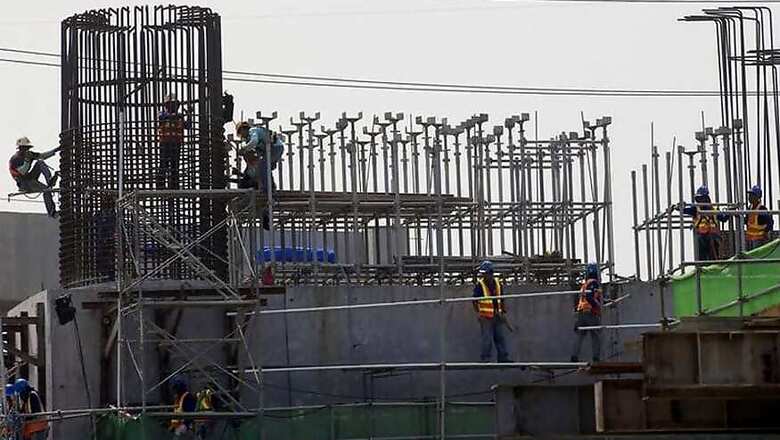
views
New Delhi: The Economic Survey Volume 2, tabled in Parliament on Friday, has sounded a note of caution on account of the dangers to the economy because of farm loan waivers and decreasing profitability in the power and telecom sectors.
“The Survey cautions that anxiety reigns because a series of deflationary impulses are weighing on the economy. These include stressed farm revenues, as non-cereal food prices have declined; farm loan waivers; and declining profitability in the power and telecommunication sectors.”
The survey also adds that, “sustaining the current growth trajectory will require action on more normal drivers of growth such as investment and exports and cleaning up of balance sheets to facilitate credit growth”. What this essentially means is an admission that the only engine driving economic growth is government spending, because corporate investments and export growth are tepid while the massive NPA crisis affecting the banking and corporate sectors needs to be dealt with to kick-start investment growth.
On the positive side, the Survey said that the launch of the Goods and Services Tax and the “positive impacts” of demonetization had rekindled optimism. Additional reforms such as the decision to privatize Air India and rationalization of energy subsidies will add to the forward momentum of the economy.
The government has decided in-principle to sell its stake in the national carrier. The strategy is yet to be worked out: whether to sell it all at one go, in chunks or retain a minority stake. The Medium Term Expenditure Framework statement tabled in Parliament on Thursday by Finance Minister Arun Jaitley stated that fuel subsidy would decline from Rs 25,000 crore this fiscal to 10,000 crore by FY 2019-20. This is because prices of petrol, diesel and kerosene have been decontrolled.
They survey said that the negative factors threatening the economy could add to deflationary impulses going forward. Economic theory states that deflation is a sign that demand in the economy is petering out, affecting the entire production cycle and increasing unemployment since factories, industries and manufacturing units start shuttering on lack of consumer demand.
“Also Farm loan waivers could reduce aggregate demand by as much as 0.7 percent of GDP, imparting a significant deflationary shock to an economy,” the survey said.
On the power sector the Survey said that the ratio of stressed companies has reached 70%, with an associated vulnerable debt of over Rs. 3.6 lakh crore. In the telecom sector, new entrants have dramatically reduced prices for and increased access to data, benefitting “at least in the short run” consumers.
Going forward, the survey predicts that GDP growth will be in the range 6.75% to 7.5% in the current fiscal while inflation by March 2018 is likely to be below 4 percent, the RBI’s target.


















Comments
0 comment